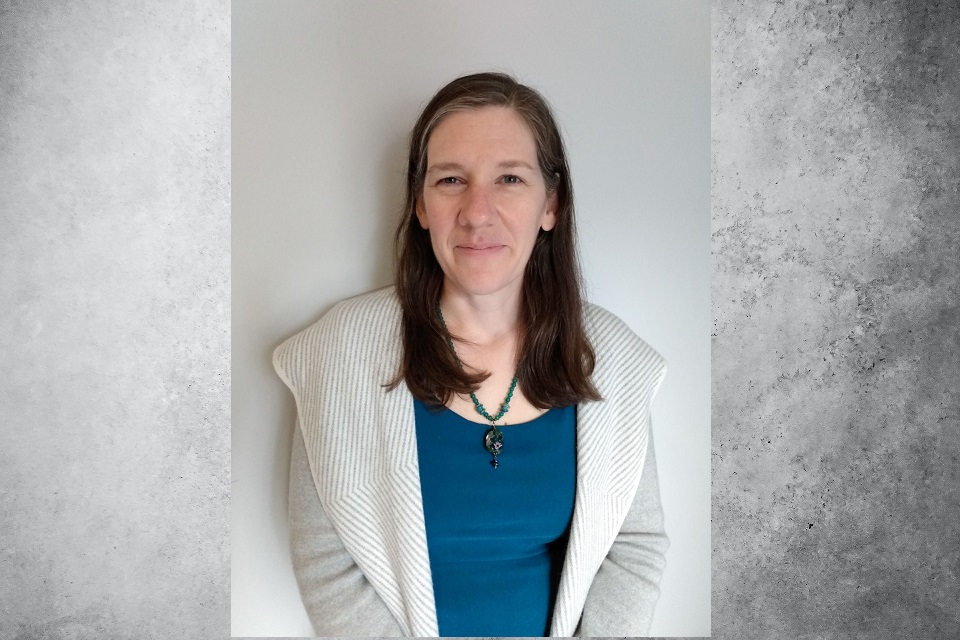Melissa Elizabeth Eberly, immigration lawyer with Paolucci Law, answers your question, “how long will it take for Immigration, Refugees and Citizenship Canada to Process my Application?”
 Today I would like to talk to you about immigration application processing timelines, a topic that I have spent a lot of time talking to my clients about over the years. In short, there’s no way to know exactly how long your application will take to be processed, but I would like to share a few of the lessons that I have learned over my years of practice.
Today I would like to talk to you about immigration application processing timelines, a topic that I have spent a lot of time talking to my clients about over the years. In short, there’s no way to know exactly how long your application will take to be processed, but I would like to share a few of the lessons that I have learned over my years of practice.
Estimated Processing Times Published by IRCC
The first thing to know about processing times is that they differ between applications and programs and they are always changing. Immigration, Refugees and Citizenship Canada (IRCC) set out service standards,[i] which is the target processing time for different categories of applications. At any given time, IRCC publishes estimated processing times for many categories of applications based on the type of application, and in some cases when the application was submitted, the place where the applicant lives or from which they are applying, and the office processing the application.
The estimate provided indicates the number of days / months it is expected to take IRCC to process the application from the date IRCC receives your complete application until the date a decision is made. These estimates are based on how long it took for IRCC to process the majority of that type of application in the past. However, in practice, there are a myriad of factors that can impact on how long it will take to process your application, some of which are discussed below.
COVID-19 and International Crises
The COVID-19 pandemic, in addition to subsequent international crises, led to substantial processing delays for IRCC. Before the pandemic, I submitted many paper-based applications to IRCC by courier, which were difficult for IRCC to process due to the public health measures in place during the COVID-19 pandemic. Over the course of the pandemic, processing times ballooned, as did IRCC’s backlog of applications exceeding service standards. Most applications can now be submitted online, and IRCC has taken many steps to improve processing times. However, in August 2022, IRCC still had a backlog of 1.3 million immigration applications, and as of October 31, 2023, IRCC had a backlog of over 900,000 applications which exceeded service standards.
Advanced Data Analytics
Over the last few years, IRCC has been using “advanced data analytics” to help with processing certain applications. Among other things, IRCC uses an advanced data analytics system to triage applications between “routine” and “non-routine” in order to make automated, positive eligibility assessments. If this system determines that the application is “routine” and determines that the application meets the eligibility requirements, then an officer assesses the applicant’s admissibility to Canada before making a final decision. If this system determines that the application is more complex or “non-routine”, then the application is triaged to an officer for regular processing whereby an officer assesses the application for eligibility and admissibility before making a final decision.
IRCC started using advanced data analytics in 2018 for certain temporary resident visa applications and found that “routine” applications processed using this system received a decision more quickly.
IRCC uses advanced data analytics across a range of programs. In January 2022, IRCC announced that it has expanded its use of the advanced data analytics system to all temporary resident visa applications submitted from outside of Canada; in October 2022 to all visitor record applications, in December 2022 to all privately sponsored refugee applications; and in September 2023 to work permit extension applications and post-graduation work permit applications, among other applications.
Although not without controversy, IRCC’s use of advanced data analytics continues to expand and evolve. If your application is subject to this system and is found to be “routine”, then you may receive a decision on your application more quickly.
Incomplete Applications and Responding to Request Letters
After receiving an application, IRCC will typically first review the application for “completeness” to make sure that it includes all of the required information, forms, fees and documents. If the application is found to be “incomplete” due to missing required information, form, fee or document, then IRCC may refuse to accept the application for processing. Depending on the type of application and the policies and procedures in place, IRCC may return an incomplete application to the applicant with information on what was missing and how to resubmit it. If the application is not returned to the applicant, IRCC may instead send the applicant a request letter, asking the applicant to submit only the missing document, forms or fees before it is accepted for processing. In either case, it takes longer for IRCC to start processing an incomplete rather than a complete application.
During the processing of the application, IRCC may request additional information, forms and documents before a final decision can be made. A delay in responding to these requests can also delay the processing of the application.
Application Complexity
Separate and apart from the factors listed above, the complexity of the application often impacts how long it takes for IRCC to process it. In my experience, applications for permanent residence that include a request for an exemption from an eligibility requirement or an inadmissibility based on humanitarian and compassionate considerations often take longer to process than applications that do not include such a request.
If the officer has a concern about your application, they may also send you a Procedural Fairness Letter (PFL), outlining their concern and giving you an opportunity to respond before a decision is made. It can take IRCC longer to process applications where the applicant has been issued a PFL because of the additional time it takes for the officer to receive, and consider the applicant’s response.
Recommendations
It can be frustrating to deal with lengthy processing times, and there is no easy solution or one answer to how to deal with the amount of time that it can take for you to receive a decision on your application. Sometimes, the best that you can do is to arm yourself with the knowledge that it can take much longer than expected for you to receive a decision on your application. However, when my clients have asked me for updates on their applications or for ideas about what they can do in response to an application that is taking a long time to process, here are some of the ideas and strategies that we have discussed.
Do you best to make sure that you are submitting a complete application which includes all the required information, forms, documents and fees;
Address upfront any issues or questions that you anticipate the decision maker may have about your application;
Make sure that you update IRCC with any changes to your personal information in your application, like your name, contact information and family situation;
You can consider using the tools available to you to check on the status of your application. When IRCC accepts an application for processing, in most cases, they will give the applicant an “Acknowledgement of Receipt” letter. The Acknowledgement of Receipt typically provides information on how to check on the status of your particular application, but you can also try IRCC’s website;
You may also consider contacting IRCC to request an update on the processing of your application, although depending on your circumstances, you may not receive a response, or not the information you were looking for;
Your Member of Parliament may be able to assist you with asking IRCC for an update on your application. Members of Parliament may require you to provide specific information and complete required forms and/or authorizations and/or consents before they will be able to assist you;
Depending on the application and the nature of your circumstances, you may be able to ask an officer to process your application on an expedited basis. For example, under certain circumstances, IRCC may consider a request for urgent processing of an application for Canadian Citizenship;
Depending on the application, the nature of your circumstances and the length of time that your application has been in processing, you may consider asking the Federal Court of Canada to get involved. In this scenario, you would be asking the Federal Court to require that IRCC make a decision on your application within a specified period of time, known as a “writ of mandamus” or a “mandamus” application. However, this is an exceptional remedy that is highly dependent on the facts of the case, subject to a complicated legal test and judicial process. You should consider obtaining legal advice before pursuing this option.
I do not necessarily recommend this option, but you could also consider making an Access to Information and Privacy Online Request (ATIP) to ask for a status update on your application. This may give you a better understanding of where your application is in processing. Ordinarily, these requests are expected to be processed within 30 calendar days from the date of receipt. However, the reason why I do not currently recommend this option is because ATIP requests submitted to IRCC are currently taking much longer to process. The results of the ATIP requests that I have made recently were received around one year after they were submitted. The results of ATIP requests can also be challenging to interpret.
It can be challenging to know how long your application may take to process, and what to do if it’s taking longer than expected. If you have questions, you may want to speak with a lawyer.
Immigrant Women Services Ottawa
219 Argyle Avenue, Suite 400
Ottawa, Ontario
K2P 2H4
Tel: 613-729-3145
Fax: 613-729-9308







